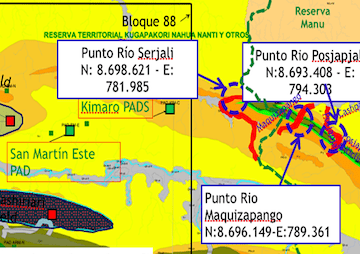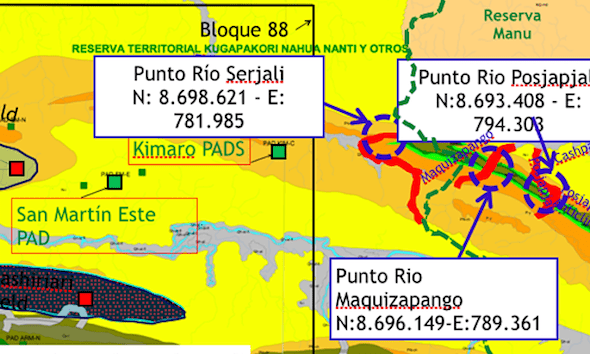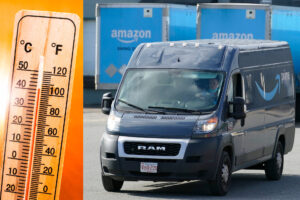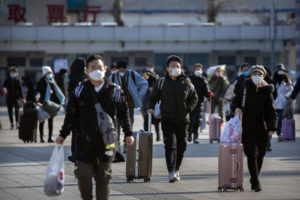Leaked Map Reveals Big Gas Is Setting Its Sights on the Most Biodiverse Place on Earth
A private energy corporation based in Argentina is eyeing Manú National Park in Peru’s Amazon, where the biodiversity “exceeds that of any other place on earth.”

Part of a map from Pluspetrol, an exploration and production company, showing its interest in areas of Manú National Park in Peru’s Amazon. (Pluspetrol)
A leaked map shows that a private energy corporation based in Argentina is eyeing Manú National Park in Peru’s Amazon, one of the most biodiverse places on earth.
In a detailed article in The Guardian, environment writer David Hill, who researches forest governance in Peru from his location in the Amazon, traces the back-and-forth of Pluspetrol’s apparent quest for the hydrocarbons beneath the protected land:
The map vaguely and ignorantly – or hopefully? Disdainfully? – calls Manu a “reserve”, where gas operations are permitted. Not so in national parks. Peru’s 1997 Law of Protected Natural Areas states “the extraction of natural resources is not permitted” in parks, while the 2001 regulations for “protected natural areas” states the “settlement of new human groups and the exploitation of natural resources is prohibited.” In addition, the 1993 Constitution “obliges” the government “to promote the conservation of biological diversity and protected natural areas.”
Manu isn’t just any national park. It is home to members of several indigenous peoples – the Matsigenka, “Matsigenka-Nanti”, “Mashco-Piro”, Nahua, Quechua and Yine – while UNESCO, which has designated it a biosphere reserve and World Heritage Site, says that the biodiversity “exceeds that of any other place on earth.” In early 2014 scientists described Manu as “top of the [world’s] list of natural protected areas in terms of amphibian and reptile diversity”, and back in 2006 other scientists found that the number of bird and mammal species is the “largest for any similarly sized area in the world.”
“For 10 years [Manu] has held the title as the world’s richest protected area for birds and mammals,” Bruce Patterson, from The Field Museum in the US, told the Guardian.
Hill writes that the map was featured in April 2013 in a report by the Peruvian nongovernmental organization Ecodess. So why draw attention to it now?
First, because the company which drew it, Pluspetrol, was given permission last year to expand its operations eastwards within a concession called Lot 88, marked on the map too. If the Camisea gas project, as operations there are known, continues to expand eastwards – i.e. beyond Lot 88, where it doesn’t currently have permission to operate – it would eventually involve Manu. Indeed, the protected areas authority within the Environment Ministry, SERNANP, expressed concern that the 2014-approved expansion within Lot 88 would impact Manu indirectly by making the migration of “nomadic populations” living in what Peruvian law calls “isolation” between Camisea and Manu “frequent”, leading to “new settlements being established” in Manu and possible conflict with “indigenous communities” there. In an article of mine in Truthout, Pluspetrol played down such concerns, saying that the “nomadic populations” are “always coming and going” and such migrations are “characteristic of the way they live.”
Continue reading here.
— Posted by Alexander Reed Kelly.
Independent journalism is under threat and overshadowed by heavily funded mainstream media.
You can help level the playing field. Become a member.
Your tax-deductible contribution keeps us digging beneath the headlines to give you thought-provoking, investigative reporting and analysis that unearths what's really happening- without compromise.
Give today to support our courageous, independent journalists.









You need to be a supporter to comment.
There are currently no responses to this article.
Be the first to respond.